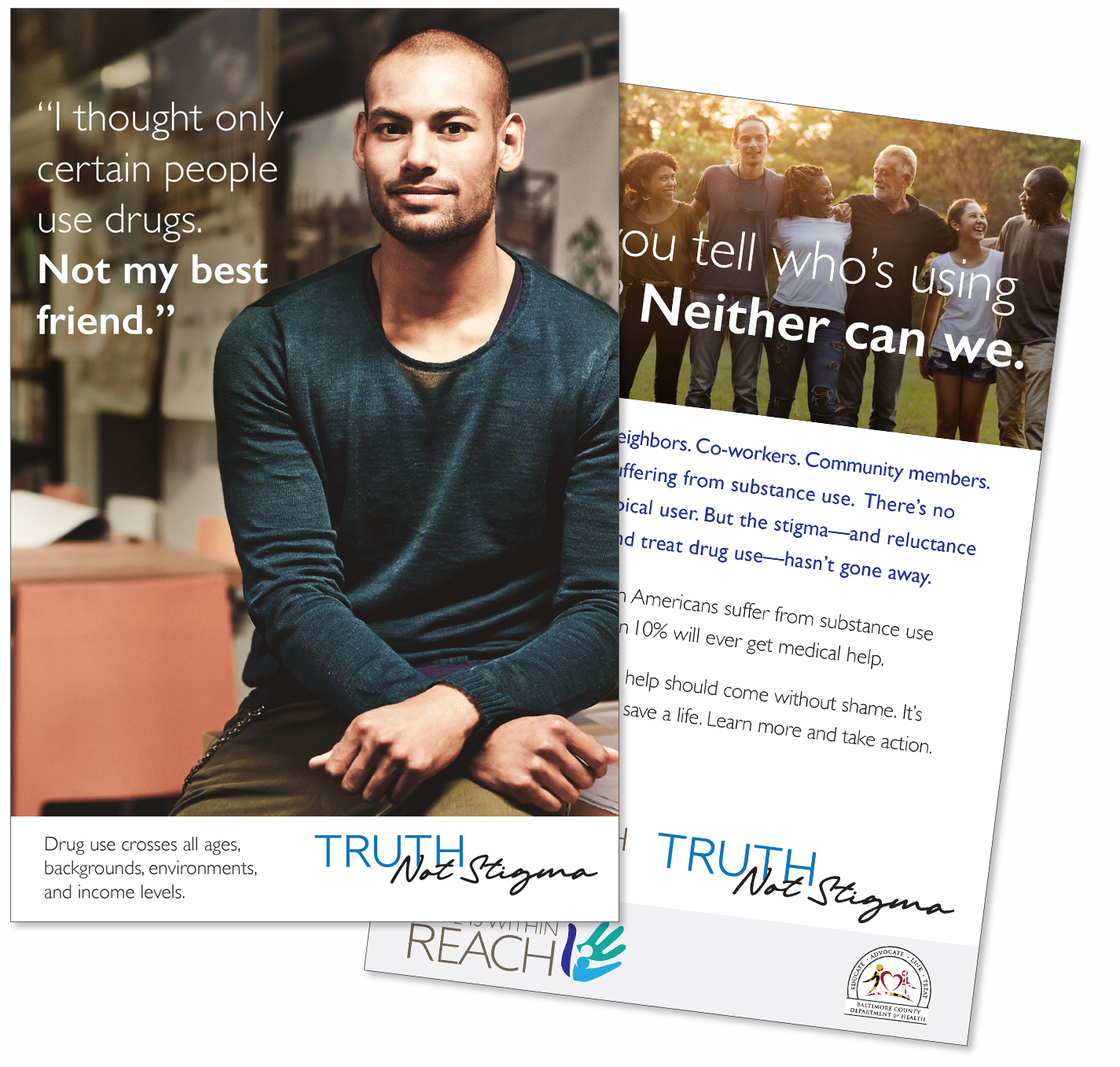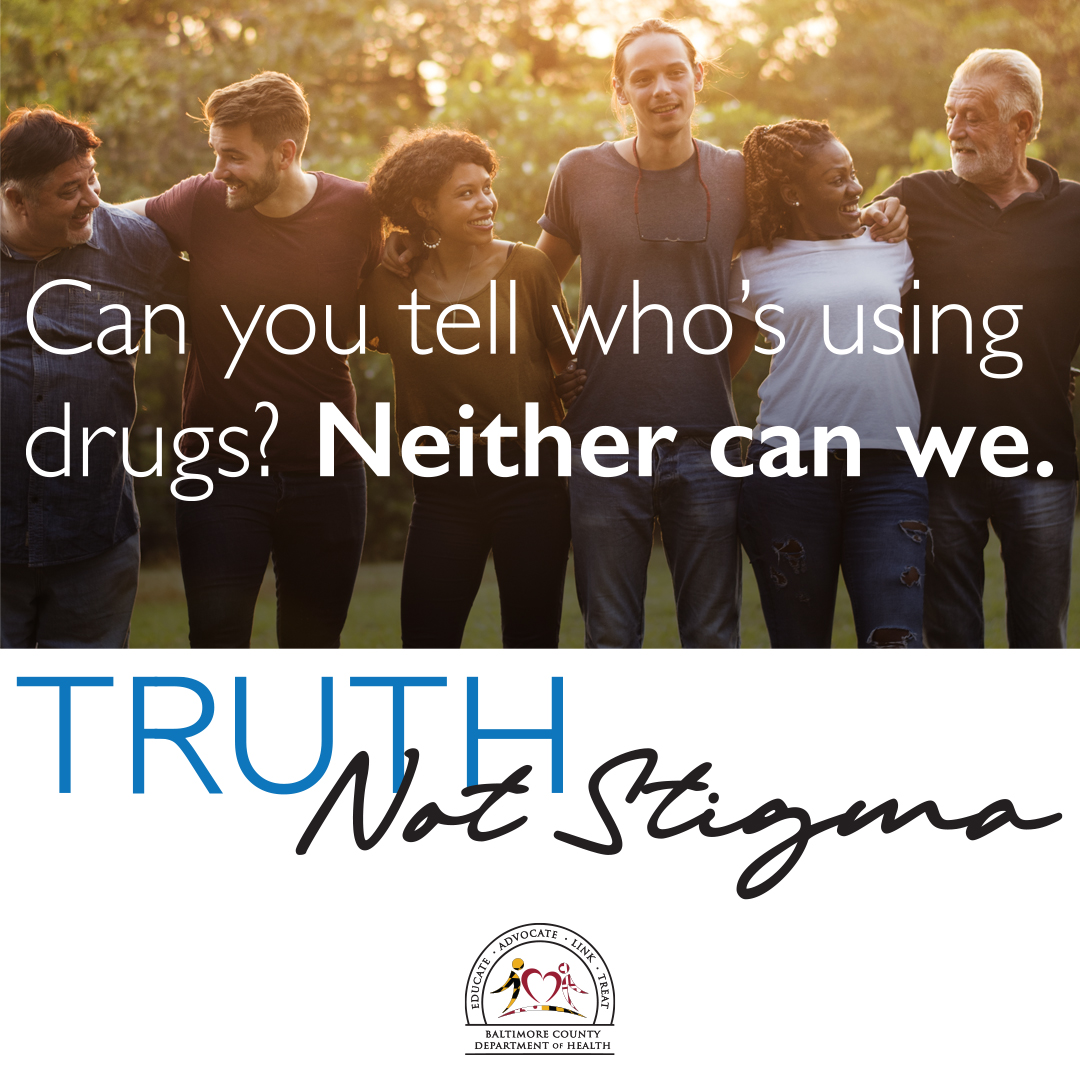Can you tell who’s using drugs? Neither can we.

Understanding the Truth
Can Overcome the Stigma
The stigma of substance use continues to be a barrier for anyone seeking help and treatment. Substance Use Disorder (SUD) is a true health condition, not a moral failure or flaw, which can affect anyone regardless of:
• age
• background
• education
• upbringing
• environment
• income level
• ethnicity
In other words, SUD can find its way into the lives of family, friends, neighbors, co-workers—anyone in your community and beyond. And the stigma surrounding it can prevent people you care about from reaching out to get help due to fear of negative stereotyping and discrimination.
What Can You Do to Fight Stigma?
Use appropriate language and terms.
The way we talk about substance use is the biggest factor in influencing people’s perceptions and perpetuating stigma. Use respectful, person-first language, such as “a person with a substance use disorder” instead of derogatory labels like “addict” or “junkie.”
Help others understand.
Be proactive in educating others about substance use disorder. Challenge old stereotypes and prejudices around drug use and learn about available treatment resources and options.
Support systemic change.
Help advance practices and policies in your community that reduce barriers to SUD and mental health treatment, increase access to healthcare, and prevent discrimination in employment and housing.


